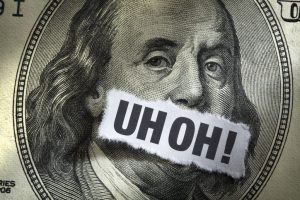Economic Recovery Is Smoke And Mirrors as Corporate Debt Bubble Ready to Bust
The comments below are an edited and abridged synopsis of an article by Francois Lenoir
Low interest rates allowed companies to borrow money at no cost. But instead of increasing productivity, the financing was used to drive up the cost of shares, setting the stage for collapse, according to Professor Richard Wolff, economist and co-founder of Democracy at Work.

US private corporate debt stands at a whopping $9 trillion, and that spells trouble for the overheated economy as soon as recession sets in, said Professor Wolff.
According to Wolff, low interest rates are a scourge, not a blessing, for the US economy, as they create the appearance of recovery rather than contributing to growth in productivity.
“It’s a very dangerous place we’ve come to, and that’s why all this talk of ‘recovery, recovery’ hides the fact that the things we did to look like we were recovering created the greater vulnerability than what we had in the first place,” said Wolff.
He said that many companies prefer to use the ‘free money’ to load up on debt and buy their own shares, or buy each other’s, since “many of the corporate executives doing that have pay packages linked to the price of the shares in the market.”
This has resulted in a corporate debt problem like never before. If an economic downturn occurs, as most economists expect over the next 12 to 24 months, nobody knows what will happen when the companies that go down can’t pay back the debts they’ve taken out.
Wolff said that the looming economic problems will have similar causes to the 2008 financial crisis, the worst since the Great Depression.
“And let’s not forget, what led to the crisis of 2008 was the inability of people who couldn’t afford it to pay back the mortgages they had taken out, and then the system fell apart based on that failure of the debt to be repayable.”
